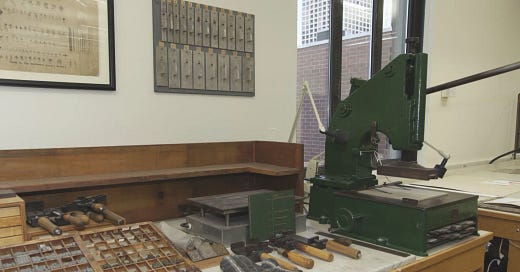Diary: (1) Donna Seaman, “River of Books”
Like many book-obsessed kids, I was often told not to read
Conservation tools, Newberry Library
Like many book-obsessed kids, I was often told not to read. My habit verged on the antisocial, the hermetic, the transgressive. I was the kind of girl who was told to put down the book and go out and play or join the family or pay attention in class. Reading is protest; it is subversive, a withdrawal, a refusal. Reading is deeply pleasurable. There is a voluptuousness to giving oneself over to language and all that it conjures, an erotic charge in communing with the thoughts and feelings of another. The reader is physically at ease and mentally attentive, gliding away from the actual, the practical, the tedious, the aggravating and into an alternative realm imagined or reported or created in a heady combination of the two.
The reader enters a world incandescent with ideas and feelings translated into language as alive as flowers, birds, vines, dolphins. Words are infused with energy like sun dapples on water, embers, rain, surf, wind, bioluminescence. Words are faceted and bright like crystals, shimmering like aurora borealis. As we study the page, we hear the lines, feel the vibration, see the patterns of vowels and consonants and all the images those little symbols magically evoke. Reading is a form of inebriation, but not of abandon. It’s an active state of heightened receptivity. It’s transporting. It bestows a sense of accomplishment.
Keep reading with a 7-day free trial
Subscribe to Book Post to keep reading this post and get 7 days of free access to the full post archives.




